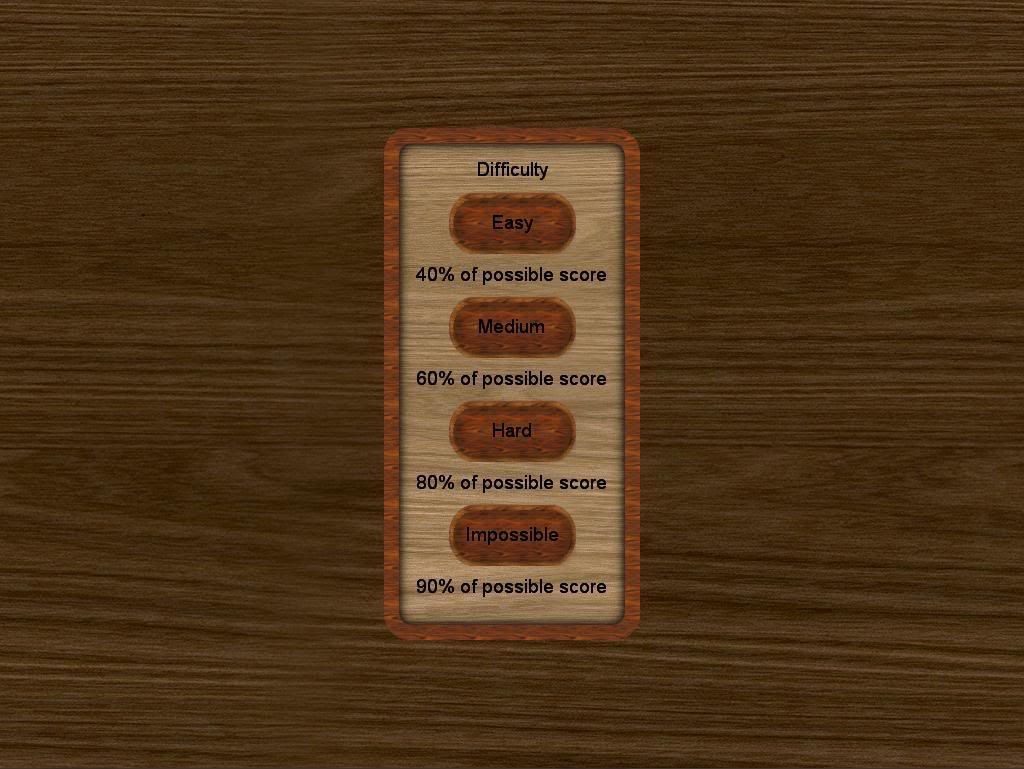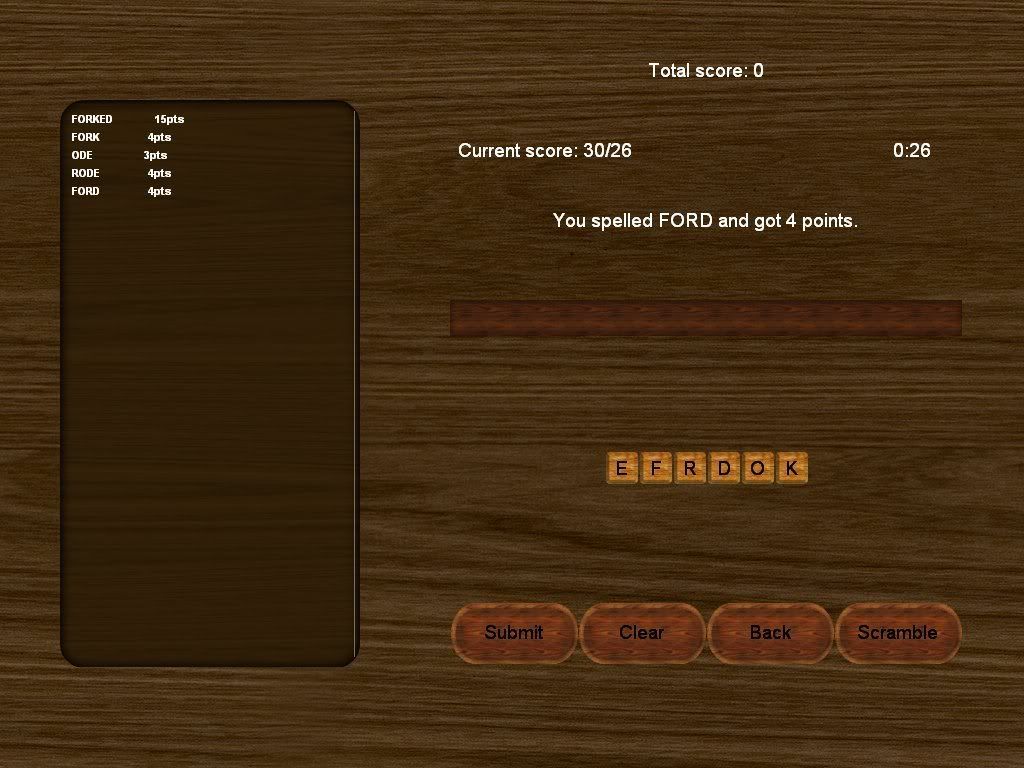Lonesome Ducky wrote:Hey, thanks for your feedback

I probably should take a look at that game design book. As you can see, programming is my forte, not layout or graphics

But thanks for your criticism, it's very useful
EDIT: I was thinking, what if I gave a certain amount of blanks (say anywhere from 3-7 for a seven letter word) and the person had to come up with a word of that length? Then after they got it, it would give another set of blanks that they had to aim for. Would this be good for more of a challenge/motivation?
Yeah, that's a
great start. Think of that as an immediate goal that motivates the player. There are all sorts of goal layers, the macro goal (name on high score list, save the princess, etc..) to the stage goal (a boss battle [not for this game]) to the level goal (all the words that are possible from the combinations) to the immediate goal (the specific word they are shooting for).
I meant to link you to
Word Whomp Dash. I'm not saying you should clone the game, but look to it for inspiration.
The macro goal of Word Whomp Dash is to get your high score above your friends. The stage goal is to get your car as far as it will go. The level goal is to fill in all the possible word combinations and the immediate goal is to create a word of desired length (the player chooses a slot they're aiming for) to fill the gas gauge.
Word Whomp Dash (or Derby as it is now called) uses a gas tank as a feedback mechanism for how much time the player has left. The gas gauge is a natural themed element that fits the overall theme of 'derby' and 'cars'. Plus it has the added benefit of being more flexible than a clock.
See, a clock drains at exactly 1 second intervals. A clock is a natural object: You can't really mess with how fast a clock counts down without frustrating the player. However, the progress bar can drain as fast or as slow as you want, it's an abstract concept. Slower in early levels, faster in later ones.
You could add seconds to a clock (this isn't beyond the realm of 'natural clock') but you can also add to a draining progress meter. It's a great visual feedback mechanism: "I created a word and it filled that draining progress meter...I'd better do it again before the meter runs out."
Plus, a progress meter has the added benefit of the question: What happens when I reach the top of the meter? If something great happens, then I'm going to try and make that great thing happen again. (Another driving goal). Clocks are infinite: there's no 'top of the clock'.
I guess another way to look at it is that your clock (as it is now) is a negative feedback device. Negative is not bad, you need negative to balance positive. Your word list is your positive feedback device. The length of the list is fixed, but the number of possible words is variable (which is great too, see
experience curves in that book I suggested). The question is: How do I know how well I'm doing?


